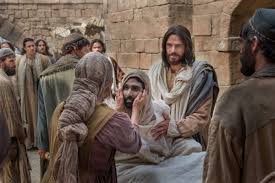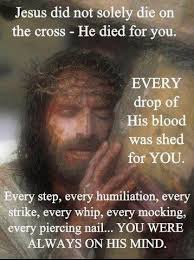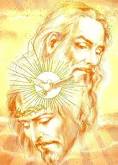

Gospel reading: Luke 7:11-17
Text
vs.11 Soon afterwards, Jesus went to a town called Nain, accompanied by his disciples and a great number of people.
vs.12 When he was near the gate of the town, it happened that a dead man was being carried out for burial, the only son of his mother, and she a widow. And a considerable number of townspeople were with her.
vs.13 When the Lord saw her he felt sorry for her. “Do not cry” he said.
vs.14 Then he went up and put his hand on the bier and the bearers stood still, and he said, “Young man, I tell you to get up.”
vs.15 And the dead man sat up and began to talk, and Jesus gave him to his mother.
vs.16 Everyone was filled with awe and praised God saying, “A great prophet has appeared among us; God has visited his people.”
vs.17 And this opinion of him spread throughout Judaea and all over the countryside.
*******************************************
We have four commentators available from whom you may wish to choose .
Michel DeVerteuil : A Trinidadian Holy Ghost Priest, director of the Centre of Biblical renewal .
Thomas O’Loughlin: Professor of Historical Theology, University of Wales, Lampeter.
Sean Goan: Studied scripture in Rome, Jerusalem and Chicago and teaches at Blackrock College and works with Le Chéile.
Donal Neary SJ: Editor of The Sacred Heart Messenger
**********************************
Michel de Verteuil
Lectio Divina The Year of Luke
www.columba.ie
General Textual comments
The only active person is Jesus, so that the passage invites us to “fix our eyes on him” (Hebrews 12:2). The story lays stress on his compassion (verse 13) as the source of his power to bring the man back to life. Note that the object of Jesus’ compassion is not the dead man but the mother.
The mother was a widow and this was her only son. She is therefore a symbol of the totally defenseless person; all her sources of security have been lost.
The bearers are those who are taking someone out for burial when in fact he can still be restored to life through the power of compassion.
The crowd, referred to in the passage as “everyone”, are people in general who experience the presence of God through the work of Jesus.
Scripture Prayer
 Lord, so often we write off people;
Lord, so often we write off people;
– alcoholics and drug addicts;
– delinquent children;
– vagrants and those we call unemployable.
We thank you for the times that you sent Jesus into our town
accompanied by his disciples and a large number of people:
– Alcoholics Anonymous
– the Vincent de Paul Society
– communities such as L’Arche,
Emmanuel, Living Water and Zion communities ;
– those who work in rehabilitation centers.
Strong in their compassion they made us stand still,
got those whom we were carrying out for burial to stand up
and begin to speak for themselves, and gave them back to their mothers
so that we were filled with awe and praised you for having visited your people.
 Lord, there is a lot of despair in many countries today.
Lord, there is a lot of despair in many countries today.
There was a time when these people dreamt of better days
and a new world they would create.
Today, like the widow in the gospel story,
they are seeing these dreams being carried out for burial.
We pray that your Church, like Jesus, may feel compassion for these people
and give them back their hopes for a glorious future.
“It strikes me that the reason why the world is not very much interested in the Church is essentially because the Church is not really interested in Christ.” … A priest at the Annual Conference of Priests of England and Wales
Lord, we sometimes feel that the Church is losing its influence in the world
and we conclude that we need more TV programs, more learned teaching,
or more organizations.
But if people see the Church living the story of Jesus, going into towns,
feeling compassion for those who mourn, telling them not to cry,
and giving them back their reason for living,
then they will be filled with awe,
they will know that a great prophet has appeared among them,
and this opinion of the Church will spread throughout the towns
and all over the countryside.
“All over the world I have found small groups who are building a new world in the shell of the one crumbling around us.” …Maisie Ward
Lord, there are many things happening in the world today
That fill us with apprehension:
– thousands of abortions carried out every day;
– famine alongside an abundance of food;
– children dying of disease even though medicines are available.
It is as if our civilization is being carried out for burial.
Yet if we look closely we will see that Jesus is alive,
Accompanied by his disciples and a great number of people
 Who are not his disciples but live according to his values:
Who are not his disciples but live according to his values:
– organizations like OXFAM that are always there to provide relief in disaster areas;
– the co-operative movement;
– Amnesty International protecting the rights of those jailed unjustly.
They are putting their hands on the bier so that the bearers stand still.
They are giving life back to our world.
Lord, we pray for political leaders.
They very easily become isolated from people
as they get caught up with problems at the national level.
We pray that like Jesus they may go into the towns and villages or their country,
together with great numbers of people who surround them,
and there see the little people who are weeping
at the loss of what was most precious to them,
and not only feel pity for them, but effectively bring joy back to their lives,
so that the country can feel blessed again.
Lord, when Jesus died on the cross humanity’s only hope was gone;
By raising him from the dead you told us not to cry and gave him back to us.
Lord, we pray for countries that are experiencing violence
– Iraq, Turkey, Northern Ireland, Zimbabwe, Palestine, Israel.
So many of their young people are being carried out for burial.
Raise up among them people like Jesus who will stop the violence
and the young people will have reason to live again.
*************************************
Thomas O’Loughlin,
Liturgical Resources for Year C (Luke)
www.columba.ie
Introduction to the Celebration
We look to Jesus as the Lord: he is the Son of the Father, the conqueror of death, who has visited us from on high to redeem us. In today’s gospel we see this in his raising a young man from the dead in Nain. We recall this incident from our memory of Jesus not because we expect miracles to happen like this every day, but because they remind us that the life Jesus gives us is not bounded by death. He gives us a new way of living in this world and the promise of the fullness of life with the Father in the world to come.
today’s gospel we see this in his raising a young man from the dead in Nain. We recall this incident from our memory of Jesus not because we expect miracles to happen like this every day, but because they remind us that the life Jesus gives us is not bounded by death. He gives us a new way of living in this world and the promise of the fullness of life with the Father in the world to come.
Gospel Note
This touching story of compassion for a widow who has lost her only son is found only in Luke. The miracle is not a demonstration of who he is or of miraculous powers as such: the divine power over life and death is only seen because it is called forth by human need.  This is power as mercy, not power as might. The response is a series of confessions of faith: ‘A great prophet has arisen among us’ (see also Lk 1:76) and ‘God has visited his people’ (see also Lk 1:68). Taken together these statements are foundation stones of Luke’s christology. This then becomes fully visible in 7:22 in the answer Jesus gives to John the Baptist’s questions: the sick are healed, the deaf hear, the dead are raised up … These are the kinds of ‘proof’ — not acts of cosmic retribution — that Jesus offers that he is the one ‘who is to come’. And in showing God’s power in this way, and the kind of messiah that God has sent, Jesus is giving us a very different ‘picture’ of God to that which many were expecting (including John the Baptist himself). So this miracle is both a ‘christology’ — telling us about how we should view the Anointed One — and a ‘theology’ – telling us how we should view the relationship of God to the creation.
This is power as mercy, not power as might. The response is a series of confessions of faith: ‘A great prophet has arisen among us’ (see also Lk 1:76) and ‘God has visited his people’ (see also Lk 1:68). Taken together these statements are foundation stones of Luke’s christology. This then becomes fully visible in 7:22 in the answer Jesus gives to John the Baptist’s questions: the sick are healed, the deaf hear, the dead are raised up … These are the kinds of ‘proof’ — not acts of cosmic retribution — that Jesus offers that he is the one ‘who is to come’. And in showing God’s power in this way, and the kind of messiah that God has sent, Jesus is giving us a very different ‘picture’ of God to that which many were expecting (including John the Baptist himself). So this miracle is both a ‘christology’ — telling us about how we should view the Anointed One — and a ‘theology’ – telling us how we should view the relationship of God to the creation.
Homily Notes
1. We can read the gospel today at two ways. First, we can read it as a miracle story and wonder whether we think likely that it could happen, or likely that it did happen. This is a concern of skeptics on the one hand who think all talk miracles is bunkum; and the concern of fundamentalists the other who want to be able to ‘prove the bible is true’ a: wrap the whole thing up in a neat little box. These two groups may thoroughly dislike one another, but they share many assumptions, not least of which is that there is little room for mystery: that sense that the fullness of the truth is greater than the sum of the facts and bits and pieces that know about. The second way of reading this gospel concentrates on what it tells us of the style of an encounter with the Christ: the lives of a sorrowful people are enhanced. Sorrow becomes joy, death becomes life, mourning has becomes dancing.
2. It is always easy to divide people into two groups and then see an opposition between them (e.g. those who can do, do: those who can’t, teach), but there are times when such groupings correspond closely with our experience. We meet people who are life-enhancers (people who bring joy and ease to their surroundings, who will help, who will listen, who will share knowledge, burdens, and sufferings) and we meet life diminishers (there is always a problem, they are always t busy with their own things to worry about others, and who when they leave after being with us we feel exhausted and ‘down’). Let us take that experience of these two types and ask this question: do we think of our encounter with God as one that is with a life-enhancer or a life-diminisher?

3. It is both easy and common to imagine God as the ultimate life-diminisher: the killjoy, the moral keeper of tabs, the wrathful raw power. God becomes a projection of the worst qualities of human power and must be appeased and served in the most servile manner. All powerful, but also small minded, keeping track of little regulations and just waiting to pounce, and small-minded also in that if the rules are kept and the various ‘security tests’ passed, then we can escape!
4. But if a good person we meet is someone we would describe as a life-enhancer, then God who is goodness itself must be the ultimate life-enhancer! This we see, presented with gentleness and sympathy and compassion and mercy, in today’s gospel. Jesus would not gives signs or miracle when he visited Nazareth, as his authority as the Son was not there for display of power. But he did show his authority over life and death in Nain where suffering called forth his mercy.
5. Many people say they find it hard to believe in miracles. OK. However, we are often so battered by human meanness and encounters with life-diminishers that we find it hard to believe that there is ultimately goodness in the universe and that the encounter with God is an encounter with life-enhancement. Believing this — what we call ‘faith’ — is often more difficult than whether or not we think miracles can occur. So today we are called to look upon Jesus and restore our faith in the loving goodness of God. The God who in love created us, in love sends us the Christ, and who desires us to enjoy his love.
****************************
3. Sean Goan
Let the reader understand
www.columba.ie
Gospel:
This dramatic story highlights the compassion of Jesus, his power over death and the link between him and the great prophets who went before. During his ministry the people who saw and heard him did not see him as the early church would after the resurrection. Rather they used the categories they were familiar with to describe him and that meant seeing him as an Elijah type figure.  This was high praise indeed but the true revelation of Jesus’ identity would only come later and would show him to be so much more than a prophet. He is the one who reveals the life giving compassion of God for a sinful, broken world.
This was high praise indeed but the true revelation of Jesus’ identity would only come later and would show him to be so much more than a prophet. He is the one who reveals the life giving compassion of God for a sinful, broken world.
Reflection
Widows and orphans appear a lot in the Old Testament because they represent potentially the most vulnerable and oppressed group in society. Without a husband or father to mind them they were subject to exploitation. Such a situation runs contrary to the plan of God revealed in the covenant and in Jesus’ preaching of the kingdom of God. In the Bible the compassion of God is not some disembodied ‘spiritual’ reality; it always shows itself in action on behalf of the most oppressed. When we gather for Mass we need to remind ourselves that we not only receive the Body of Christ but that we are called to be the Body of Christ – the compassion of God in the world.

********************************************
4. Donal Neary S.J.
Gospel reflections
www.messenger.ie
Compassion gives life
Maybe there are two elements to this story about raising the son of a widow to life. It is a sign of the mission of Jesus and fits into the tradition of the prophets.  Its source is Jesus'” compassion for a widow who has just lost her only son, so that she would not be totally on her own and without support, given that social welfare had not come to that area!
Its source is Jesus'” compassion for a widow who has just lost her only son, so that she would not be totally on her own and without support, given that social welfare had not come to that area!
The compassion of Jesus here is so strong that life flows from it into a dead man. The compassion is for someone for whom there would now be little place in society and the fortunes of the widow in that time depended on the religious motivation of the people.
In the end the people were of course amazed, but their amazement brought them to Jesus. We might think that they would be mesmerised by the man raised from death, but their awe brought them to praise God for his great work.
Our ordinary life can bring us in touch with great goodness and spirituality in people, or to a depth of prayer and care for the poor. Through many such people, God is very near and real in the world, and so our praise can be directed to God as we thank these men and women for what they do.
T he compassion that flowed from Jesus to bring life to a dead man can flow from us to enliven the lives of others. We can ‘grow’ this compassion in prayer. Our prayer with God if it is sincere will lead us into the mystery of being loved by God and called into love of others.
he compassion that flowed from Jesus to bring life to a dead man can flow from us to enliven the lives of others. We can ‘grow’ this compassion in prayer. Our prayer with God if it is sincere will lead us into the mystery of being loved by God and called into love of others.
Teach us compassion O Lord,
for in our compassion for others,
we are doing your will.